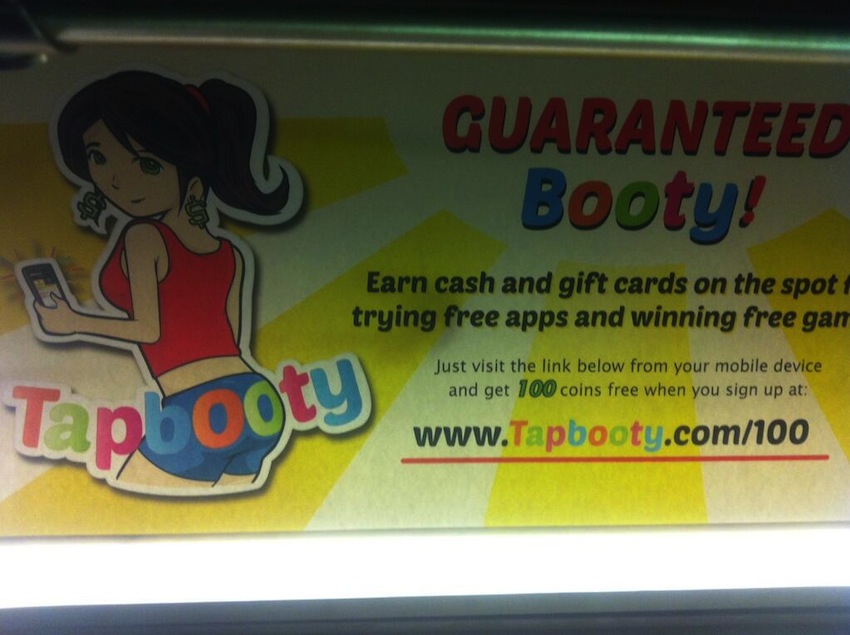Anti-Street Harassment Group Wants T Advertisement Taken Down
UPDATE September 3, 1:37 p.m.: A T official said that the advertiser has decided that it wants the ads removed from the trains. The company posted the following statement to Boston’s comment section following the announcement: “We are sorry that our ad on the MBTA is offensive to you, and we have asked our advertising agency to take the ad down. We have a lot of users at Tapbooty having fun, playing free games and earning cash and gift cards. Our intention with these ads was simply to attract new users, not to impact anyone adversely.”
EARLIER: An anti-street harassment group is asking MBTA officials to remove advertisements from some of their trains that they claim promote the objectification of women and non-consensual touching.
Britni de la Cretaz, co-site director of HollaBack! Boston, an online resource for people that want to fight to end street harassment in the city, said a photo of a cartoon woman, with the words “TapBooty” branded over her behind in multi-colored letters, is “super sexualized” and prominent in a place where groping and inappropriate contact has been a persistent issue for commuters. “We get stories constantly about groping incidents on trains,” she said. “The cartoonist made it super sexualized, and the reason I felt that was inappropriate is because a lot of people riding the trains have their butts touched without consent all the time.”
The advertisement is for a company called “TapBooty,” which describes itself as a social app where users can gain rewards for playing trivia games, and answering questions.
According to de la Cretaz, she has been reaching out to T officials via Twitter, and the company “TapBooty,” to address the cartoon image and try to get it removed from the Orange Line vehicle where she saw it posted. “I’d like the ad taken down,” she said. “It absolutely promotes the idea of that type of harassment.”
Emails to MBTA officials about the advertisement, and whether or not it would be removed, were not immediately returned.
She said every time she tweets about the advertisement she gains more support from people in the community who feel the same way about what the company name and message conveys.
HollaBack! Boston has been conducting a survey, gauging peoples’ experiences with street harassment, and has received more than 500 submission detailing incidents in the city. According to de la Cretaz, a majority of the responses on the survey indicate harassment on the T is a big problem. “Then you see an ad that says ‘tapping booty’ and it’s about touching some girl’s butt,” she said. “If the T doesn’t take it down, I’m going to contact the company [directly].”
Besides her gripes with the advertisement’s message, de la Cretaz said it was strange to have an image like “TapBooty” hanging up in the same place that T officials have been promoting an anti-harassment campaign through their own advertising.
In April, following a series of reports of indecent exposure on various MBTA trains, and some reports of sexual harassment, transportation officials rolled out a renewed effort, in the form of public service announcements, that made clear to riders that sexual misconduct will not be tolerated.
The posters warn potential suspects that if they harass other riders they will be reported, or the victim could take their photo. “I know in general [the T tries] to be good about talking about harassment and how it is not OK. Maybe they just didn’t even realize that’s what [the advertisement] looked like,” said de la Cretaz.
She said Hollaback! Boston is looking to put their own ads up on the trains to address this type of behavior.



